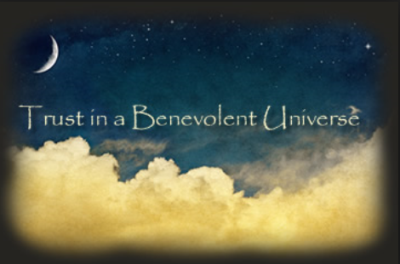What is the ‘law’ of attraction?
The law of attraction is a pseudoscience that first gained momentum in nineteenth-century New Thought philosophy and subsequently in the writings of Napoleon Hill, Louise Hay, Esther Hicks and others.
The concept gained prominence in the 1960’s as part of the New Age movement, largely due to its appeal to personal empowerment at a time of mass cultural liberation; a time when free-thinkers sought to dispel the myths and shackles of patriarchal ideologies, including religion. Indeed, the concept that we are the agents of our own destiny — that our interactions with a higher power enables us to manifest our wildest dreams — was the opposite of the belief in a transcendental, comminatory, masculine God that commands subservience through fear.
From a secular viewpoint the idea that we fashion our own reality — as opposed to being enslaved to dominant discourses — was a breath of fresh air to the plethora of subversive counter-cultures that emerged at the time.
In an increasingly secularised and individualistic society the concept has maintained its currency and has gained further popularity with the release of the film ‘The Secret’ (2006) and latterly with the publication of the eponymous book.
In essence, the law of attraction is the belief that positive or negative thoughts manifest positive or negative experiences into our lives. Drawing loosely on quantum physics, it is predicated on the idea that people and their ideas are made of energy, and therefore a person can fashion their own reality by emitting a certain energy signature that the Universe responds to in kind: so if you think that you are wealthy, then the Universe will manifest wealth for you; if you think that you are healthy, then the Universe will manifest good health for you, and so on.
According to the law of attraction we are empowered to make our unlimited desires come true. There is no limit to what we can manifest through positive thought alone. We are the shapers of our destiny; we are masters over the Universe because it responds to our will and our desire.
So what’s the catch?
The ‘ugly flipside’ to this concept is that if our thoughts create our reality then we are responsible for attracting unwanted experiences, unwanted people, and unwanted health complications into our lives. If something tragic befalls us, such as an accident involving a loved one, then somehow we are responsible for its manifestation.
Teachings on the law of attraction make it pretty clear that the Universe is impartial to ‘good’ or ‘bad’ thoughts, so if a murderer wants to commit a heinous crime, then the Universe will make it so.
Rape. Murder. Genocide: the Universe doesn’t give a shit, apparently. This is of course at odds with the notion that the Universe is benevolent.
But why should the Universe be benevolent?
The Universe is made of energy. And if we believe that the highest vibration of energy is Love, which is what gave birth to and continues to sustain the Universe, then surely the Universe is intrinsically benevolent by virtue of being pure Love.
So how can a ‘benevolent’ Universe manifest such horrendous acts that are co-created by human beings through the law of attraction?
The answer seems to be this: we have free will to create our own destiny.
We choose good or bad actions and, according to the law of attraction, the Universe remains indifferent.
But the idea of free will — and the concomitant belief that we can fashion our own reality — contradicts the common belief in law of attraction discourse that we should surrender to the Universe because it has a Divine Plan different to or greater than that which we can conceive of ourselves.
If what we choose to manifest goes against our higher purpose, or if we refuse to ‘surrender’ to the Universe, then that is called ‘resistance’, which is the opposite of surrender or ‘allowance’, which is key to successful manifestation.
So how can deliberate creation/manifestation and ‘surrender’ go hand in hand? Does the Universe have a plan for us or not? Does the Universe have mastery over our destiny or are we the agents of our own fate?
If we each have a Higher Self — and the fullest expression and fulfilment of that self is through our Higher Purpose — then what if what we think our purpose is contradicts what the Universe has predestined for us?
Can we truly fashion our own reality if the Universe has preordained our destiny?
This is where the idea of ‘alignment’ comes into play: when our sense of a higher purpose aligns with the Universe, then and only then do we manifest our dreams.
But here’s the rub…
Once again, this suggests that the Universe is not indifferent in the respect that it wants us to align with our Higher Self and higher purpose, which is ultimately to live with love and to manifest love.
If that were the case, then it would suggest that the Universe is benevolent after all.
Personally, I believe that the Universe is Love and therefore I have a hard time accepting that it doesn’t give a shit whether or not people choose ‘good’ or ‘bad’ manifestations.












Read 0 comments and reply